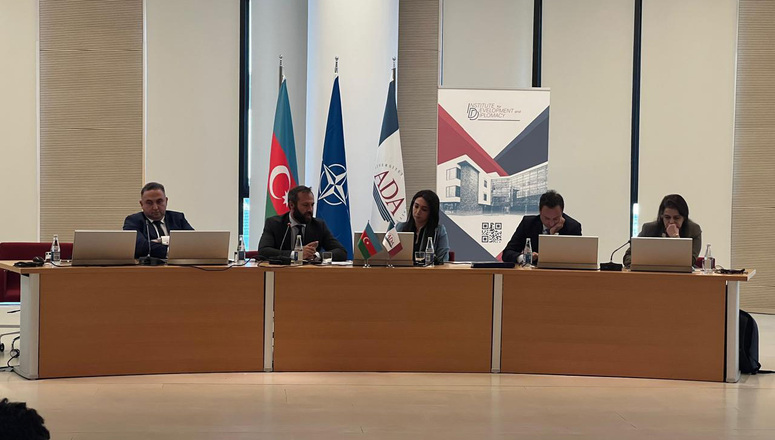On 25 and 26 September, a team from the NATO Science for Peace and Security (SPS) Programme was in Baku, Azerbaijan to review practical scientific cooperation and kick off a new research project focused on protecting critical infrastructure from cyber-attacks.

Photo credit: Azerbaijani MFA
Through the new project, contributors will develop a cyber platform that will allow organizations to train staff, test new technologies, and assess processes under pressure from simulated cyber-attacks. Over the next two years, the National Institute for Research and Development in Informatics - ICI Bucharest (Romania) and the Special Communication and Information Security State Service of the Republic of Azerbaijan will work together to bring this initiative to life. The aim is to help cyber defence teams better understand the vulnerabilities of Operational Technology systems so they can be better protected. These systems are the backbone of critical infrastructure such as power grids, water treatment plants, and transportation systems.
While in Baku, the NATO team also organized an Information Day at ADA University. It focused on NATO's scientific cooperation activities involving Azerbaijan, and on encouraging new ideas involving the local research community. Over 40 participants from academia, as well as from Azerbaijan's Ministries of Foreign Affairs and of Defence participated in the event.
NATO's SPS Programme has a history of cooperation with Azerbaijan. Over the years, this has included activities focused on neutralising toxic rocket fuel left behind from Soviet times, securing energy infrastructure against seismic hazards, protecting cyber networks, and developing sensors for the detection of landmines and explosives.
Through its activities, the SPS Programme provides opportunities for academics, experts and officials in Azerbaijan, as well as other partner countries, to develop proposals for innovative scientific projects to be implemented with peers in NATO countries. Through these activities, participants exchange knowledge on security-related topics and build relationships that expand international scientific networks.






